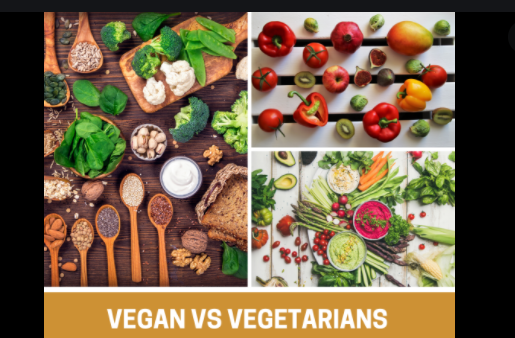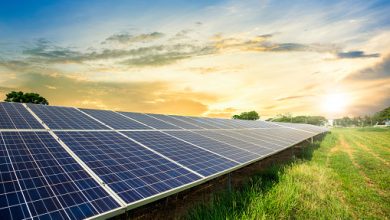Vegan vs Vegetarian – What’s The Difference?

One of the main reasons people decide to go vegan or vegetarian is for ethical reasons: they don’t want to support industries that cause animal suffering, environmental destruction and serious health problems. Other people choose a vegan diet because it is better for their body. By switching to a vegan diet, you can improve your own health and protect animals at the same time!
What is a Vegan Diet?
A vegan diet is a type of vegetarian diet that excludes all animal products, including eggs, dairy, and honey. Vegan diets can be either whole-food or processed, and may include a variety of plant-based protein sources, such as beans, lentils, tofu, and tempeh. While some vegans also avoid using any animal products in their daily lives (including clothing and cosmetics), others may consume some animal products occasionally.
What is a Vegetarian Diet?
There are many different types of vegetarianism, but all vegetarians avoid eating meat, poultry, and fish. Some people become vegetarians because they object to the way animals are treated in the meat industry. Others become vegetarians for health reasons.
A vegetarian diet can be a healthy option, but it’s important to make sure you’re getting all the nutrients your body needs. The Academy of Nutrition and Dietetics (AND) points out that a well-planned vegetarian diet can meet all the Recommended Dietary Allowances (RDA) for nutrients.
However, some vegetarians may not get enough of certain vitamins and minerals if they don’t eat carefully planned diets. For example, AND says that lacto-ovo vegetarians who don’t eat eggs or milk products may need to take supplements to get enough vitamin B12. Vegans may also need supplements for vitamin B12, iron, and calcium.
Difference between vegan and vegetarian diet
There are a variety of reasons why people may choose to follow a vegan or vegetarian diet. Some people do it for ethical reasons, others for health reasons, and still others for environmental reasons. Whatever the reason, it’s important to know the difference between Vegetarisch en Veganistisch before making the commitment to either one.
A vegan diet is one that excludes all animal products, including eggs, dairy, and honey. A vegetarian diet is one that excludes meat but may include eggs, dairy, and honey. So, the main difference between these two diets is that vegans exclude all animal products while vegetarians may still eat some animal-based foods.
Those following a vegan diet must be careful to get enough protein, iron, calcium, and vitamin B12 in their diets. These nutrients are found in abundance in meat and other animal products but can be more difficult to come by on a plant-based diet. This is why many vegans supplement their diets with vitamins and minerals or eat foods that are fortified with these nutrients.
If you’re considering making the switch to a vegan or vegetarian diet, it’s important to do your research and make sure you’re prepared to commit to this lifestyle change. It can be a big adjustment at first, but it’s definitely possible to reap the rewards of a plant-based diet if you go into it with an open mind and a willingness to experiment in the kitchen!
Pros and Cons of the Vegan and Vegetarian diet
There are a variety of reasons why people may choose to follow a vegan or vegetarian diet. Some people do it for ethical reasons, while others do it for health reasons. There are also environmental and economic benefits to these diets. However, there are also some potential drawbacks that should be considered before making the switch.
The main benefit of following a vegan or vegetarian diet is that it is much healthier than a standard Western diet. These diets tend to be lower in saturated fat and cholesterol, and higher in fiber and antioxidants. This can lead to a reduced risk of developing heart disease, obesity, type 2 diabetes, and certain types of cancer.
Another advantage of these diets is that they are more environmentally sustainable than a meat-based diet. The production of animal products requires large amounts of land, water, and energy. This can have a negative impact on the environment, including contributing to climate change. Vegan and vegetarian diets require far less resources to produce, making them more sustainable in the long term.
There are also economic benefits to following a vegan or vegetarian diet. Animal products tend to be more expensive than plant-based foods, so switching to one of these diets can save you money over time. Additionally, choosing local and seasonal fruits and vegetables can further reduce your food costs.
However, there are also some potential drawbacks to following a vegan or vegetarian diet that should be considered before making the switch. One downside is that these diets can sometimes be low in important nutrients
What Foods to Eat on a Vegan or Vegetarian Diet?
There are many delicious plant-based foods that you can enjoy on a vegan or vegetarian diet. Here are some ideas to get you started:
- Fruits and vegetables of all kinds, including leafy greens, root vegetables, berries, and citrus fruits
- Whole grains such as oats, quinoa, brown rice, and barley
- Beans and legumes such as black beans, lentils, chickpeas, and kidney beans
- Nuts and seeds such as almonds, walnuts, sunflower seeds, and pumpkin seeds
- Plant-based oils such as olive oil, avocado oil, and coconut oil
- Vegan milk alternatives such as soy milk, almond milk, cashew milk, and oat milk
- Vegan cheese alternatives made from tofu or nuts
- Vegetarian meat substitutes made from tofu, seitan (wheat gluten), tempeh (fermented soybeans), or mushrooms
Recipes
When it comes to vegan vs vegetarian recipes, there are some key differences to be aware of. Vegan recipes tend to be dairy-free and egg-free, while vegetarian recipes may include these ingredients. Vegan recipes also often rely on plant-based proteins, such as beans, nuts, and tofu, while vegetarian recipes may include eggs and dairy as protein sources.
So, when you’re looking for vegan or vegetarian recipes, make sure to take into account these key differences. Dairy-free and egg-free vegan recipes can be found online and in many cookbooks. And if you’re looking for plant-based protein sources in your recipe, soy products like tofu or tempeh are good options.
Alternatives to the Vegan or Vegetarian Diet
When it comes to vegan and vegetarian diets, there are a few key differences. For one, a vegan diet excludes all animal products, while a vegetarian diet may include eggs, dairy, and sometimes even honey. Additionally, a vegan diet is often seen as more restrictive, as it eliminates whole food groups like meat and dairy.
However, there are many different types of vegan and vegetarian diets, so it’s important to find one that best fits your needs and lifestyle. If you’re looking for alternatives to the Vegan or Vegetarian Diet, here are a few options to consider:
- The Flexitarian Diet: This diet is perfect for those who want to reduce their meat consumption but aren’t ready to commit to a completely plant-based diet. The Flexitarian Diet allows for small amounts of meat and animal products, making it a more flexible option.
- The Paleo Diet: The Paleo Diet is based on the premise that we should eat like our ancestors did during the Paleolithic era. This means consuming mostly fruits, vegetables, nuts, and seeds – with very little (if any) processed foods or refined sugars.
- The Mediterranean Diet: The Mediterranean Diet is based on the traditional eating habits of people living in the Mediterranean region. It emphasizes fresh fruits and vegetables, olive oil, legumes, fish, and moderate amounts of wine.
- Raw Food Diet: A Raw Food Diet consists of mainly uncooked fruits, vegetables, and
Conclusion
The debate between veganism and vegetarianism is one that has been around for years, with no clear winner in sight. Both lifestyles have their own set of pros and cons, making it difficult to decide which one is right for you. Ultimately, the decision comes down to personal preference and what you are hoping to gain from following either diet. If you are looking to improve your health, both veganism and vegetarianism can offer benefits; however, if you’re more interested in reducing your impact on the environment, veganism may be the better option. Whichever lifestyle you choose, make sure you do your research so that you can make an informed decision.



